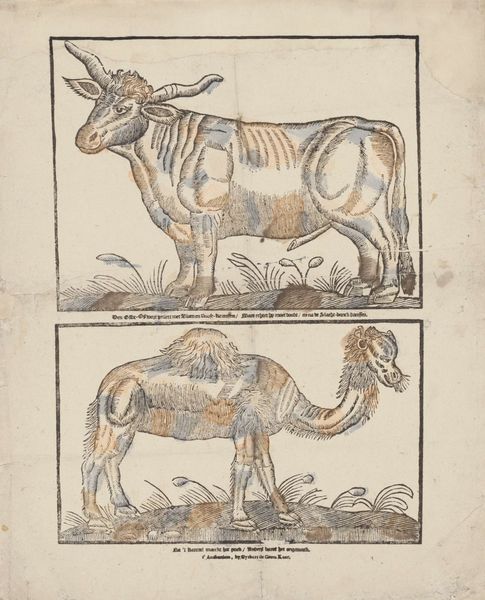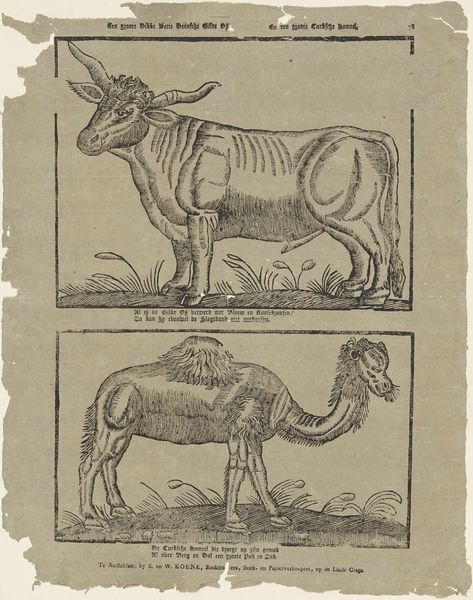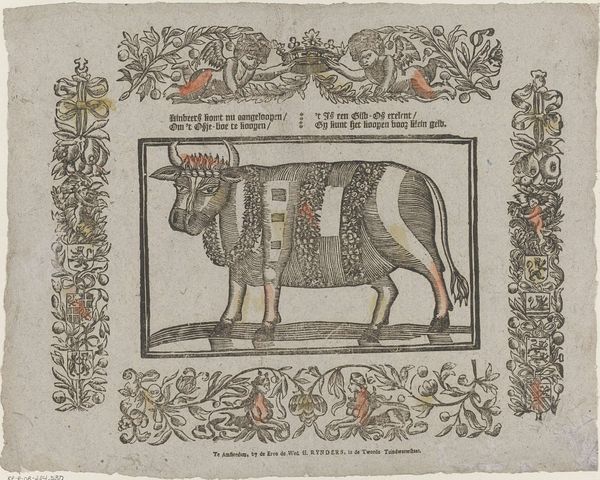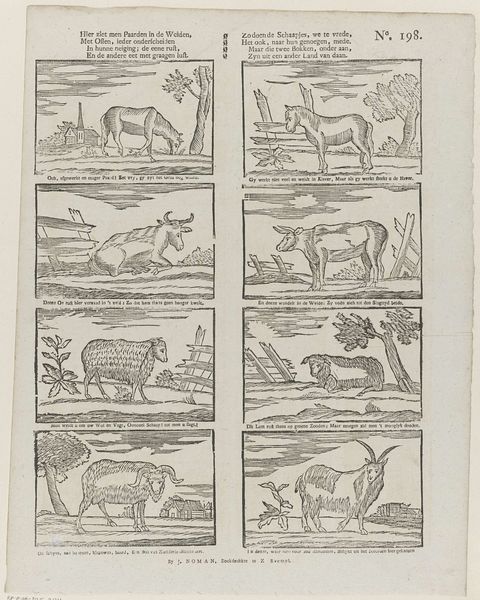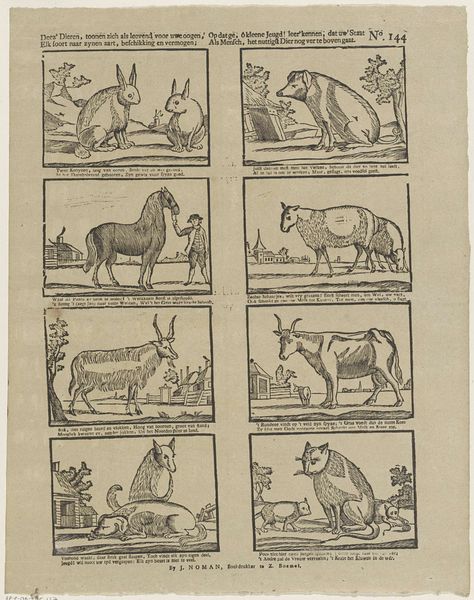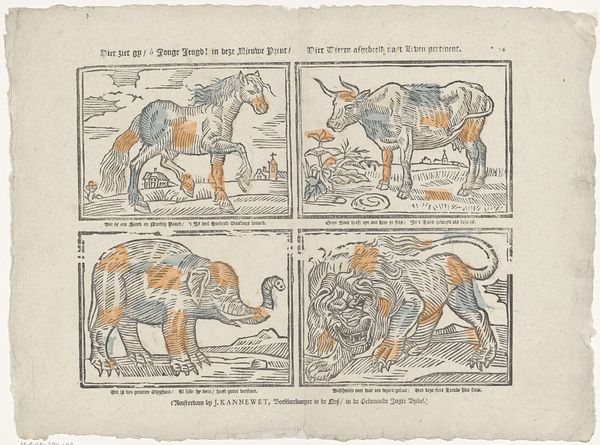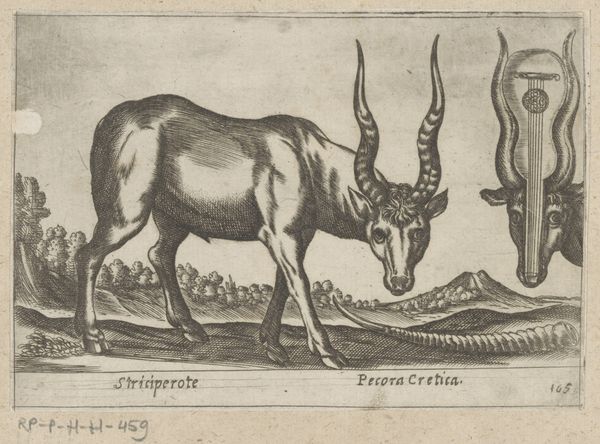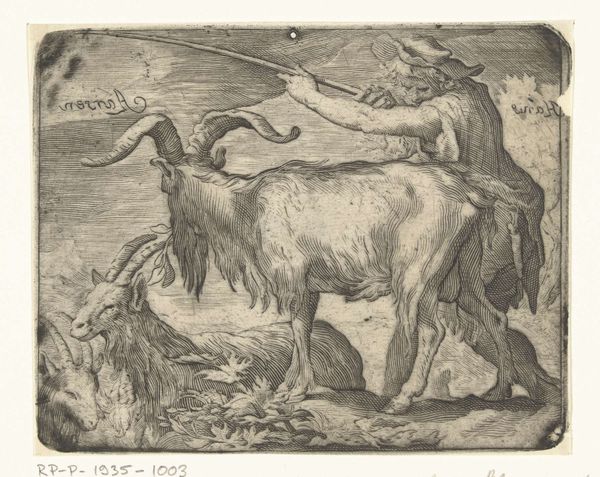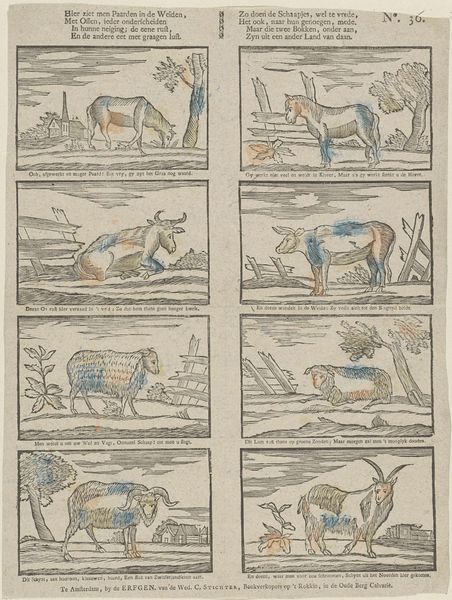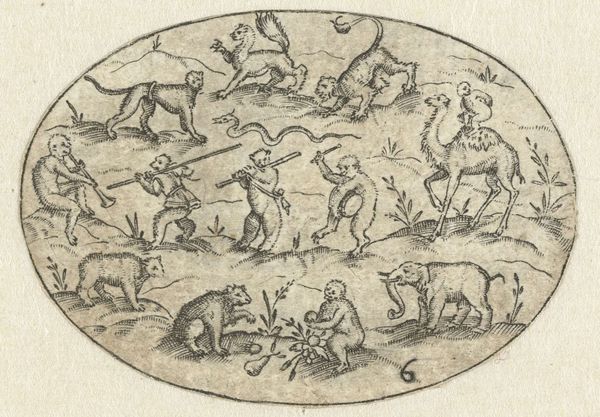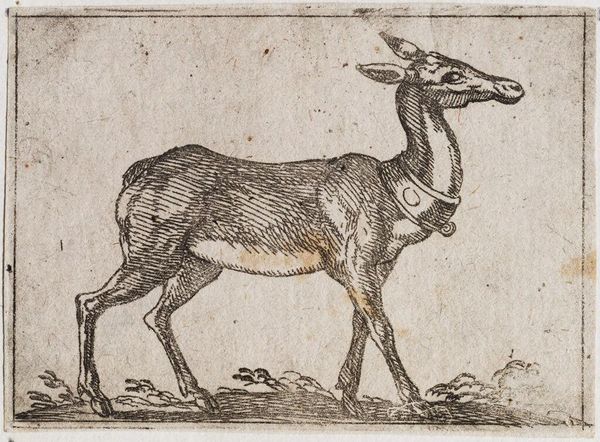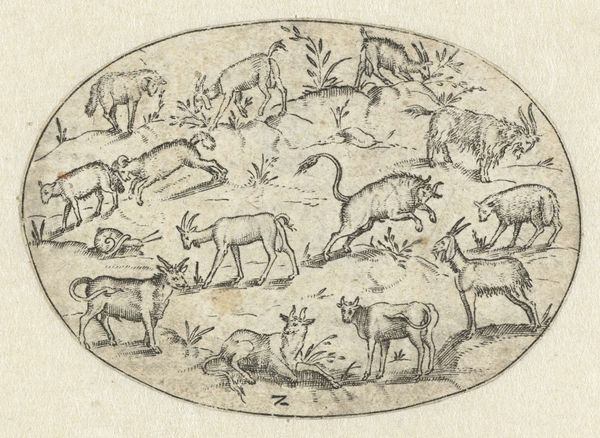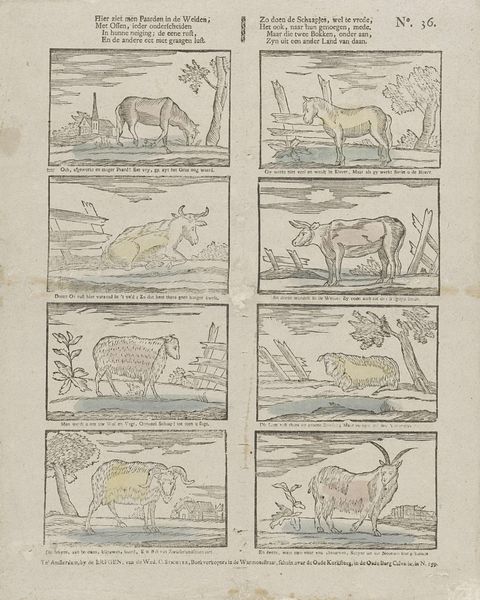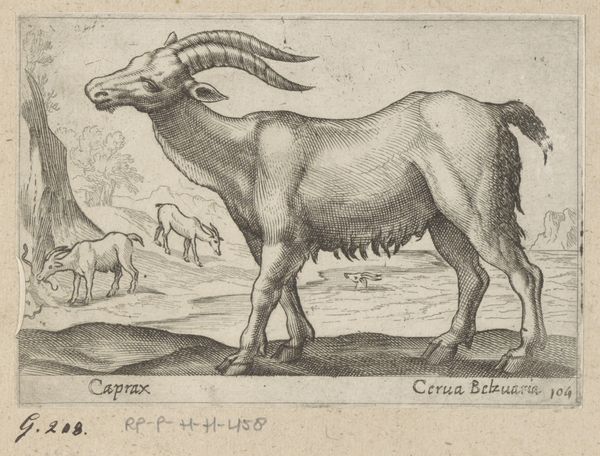
drawing, paper, ink, pen
#
drawing
#
toned paper
#
quirky sketch
#
animal
#
pen sketch
#
figuration
#
paper
#
personal sketchbook
#
ink
#
ink drawing experimentation
#
pen-ink sketch
#
pen work
#
sketchbook drawing
#
pen
#
genre-painting
#
storyboard and sketchbook work
#
sketchbook art
Dimensions: height 383 mm, width 306 mm
Copyright: Rijks Museum: Open Domain
Editor: This ink and pen drawing from between 1814 and 1830 is entitled "Een groote dikke vette gilde-os, en een groote Turksche kameel" by Barend (III) Koene. What a mouthful! The ox and camel, though drawn in the same style, seem to embody very different ideas. What can you tell me about them? Curator: Notice how both animals are compartmentalized through the use of these color fields; this disrupts their natural forms and encourages you to see them less as organisms and more as containers. It's interesting to see this early modern need to categorize and contain the "foreign" world through the bodies of animals, the guild ox and the Turkish camel. Editor: That's fascinating! They’re both clearly "othered," even the ox with its association to local guilds and civic life. Curator: Consider also the accompanying text; though they appear to offer descriptions, are they celebrating them? I'd argue that these verses act to subordinate and domesticate these powerful symbols, turning them into contained spectacles for the viewer’s entertainment and moral instruction. Can we truly experience something “foreign” or do we unconsciously, and maybe inevitably, integrate into our pre-existing symbolic orders? Editor: I never thought about it that way. The "other" becomes a reflection of ourselves through the symbolic framework we impose. Curator: Exactly! The impulse to categorize, dissect, and moralize speaks volumes about the cultural anxieties of the time. This tension between observation and appropriation is essential in understanding the symbolic landscape. Editor: It's eye-opening to think how much cultural weight is loaded onto what appears to be a simple drawing of two animals. Thank you. Curator: A pleasure! The beauty of art lies in its ability to hold up a mirror to ourselves and our history.
Comments
No comments
Be the first to comment and join the conversation on the ultimate creative platform.
